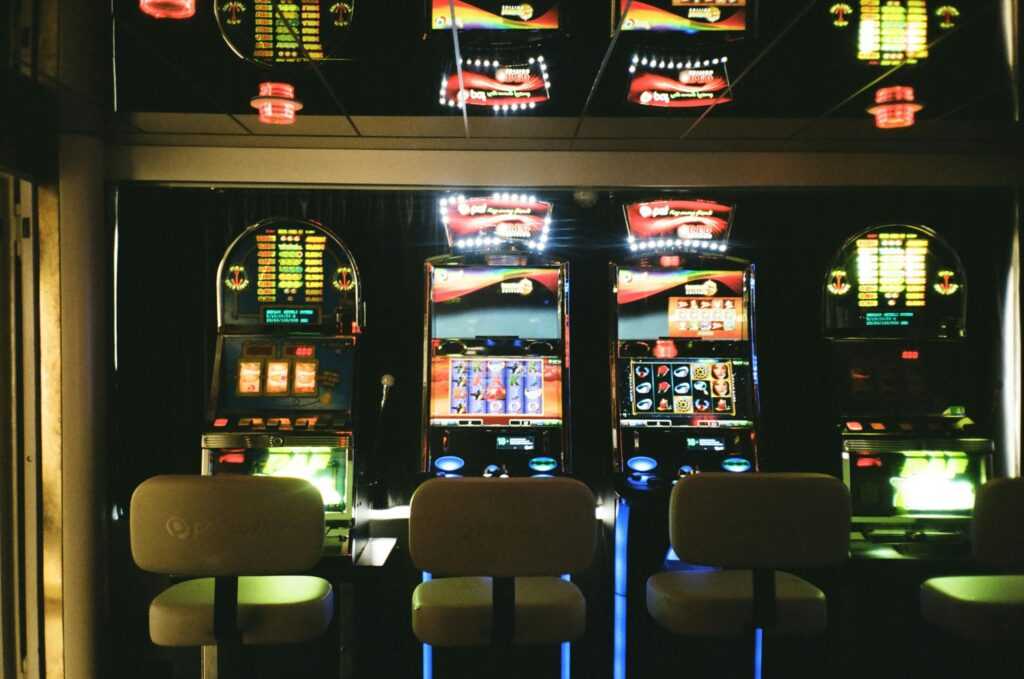Understanding Gambling Addiction
What Is Gambling Addiction?
Gambling addiction, also known as compulsive gambling, can be described as an uncontrollable urge to keep gambling despite negative consequences.
According to the American Psychiatric Association, it’s classified as a behavioral addiction, similar to substance abuse in terms of its psychological impact and behavior patterns.
Individuals with this condition often spend excessive time and money on gambling activities, neglecting personal and professional responsibilities.
The addiction isn’t merely about financial loss; it also involves significant emotional and mental strain.
Psychological Triggers of Gambling
Several psychological factors contribute to gambling addiction. Stress, for instance, is a major trigger.
Many individuals turn to gambling as a coping mechanism for life stressors or to escape from reality.
Cognitive distortions, such as the illusion of control and gambler’s fallacy, make individuals believe they can influence the outcomes of random events or that a win is due after a series of losses.
Emotional highs from winning can also create a powerful psychological reinforcement.
Over time, adrenaline and dopamine become associated with betting, making the risk-reward dynamics deeply compelling.
Social factors, including peer pressure and the glamorization of winning, further contribute to the addiction, creating a complex web of psychological triggers that make quitting difficult.
The Brain’s Role in Gambling Addiction
How Gambling Affects the Brain’s Reward System
Gambling activates the brain’s reward system by triggering the release of dopamine.
It’s the same neurotransmitter involved in pleasure and reward from activities like eating and sex.
Dopamine surges create a feeling of euphoria, making winning especially intoxicating. Even near-misses, where gamblers almost win, can stimulate dopamine release, reinforcing the gambling behavior.
The unpredictability of gambling outcomes intensifies this effect. Unlike predictable rewards, random rewards excite the brain’s reward pathways more powerfully.
Slot machines, for example, are designed to deliver intermittent rewards, making players continue playing in anticipation of the next win.
The brain flags these unpredictable wins as significant events, further reinforcing the desire to gamble.
Neurological Changes Due to Chronic Gambling
Chronic gambling can lead to significant neurological changes. Persistent exposure to gambling alters the brain’s structure and function, much like substance addiction.
Over time, the brain’s reward system becomes less sensitive to dopamine. This reduction means gamblers need to bet more to achieve the same high, a phenomenon known as tolerance.
Additionally, chronic gambling affects the prefrontal cortex, the brain region responsible for decision-making and impulse control.
Impaired prefrontal cortex function can make it harder for individuals to resist the urge to gamble, even when facing severe negative consequences.
Studies using MRI scans have shown structural changes in this area of the brain in heavy gamblers, highlighting the long-term impact of gambling addiction.
These neurological adaptations create a vicious cycle, where the diminishing returns of gambling lead to increased effort to regain the lost high, perpetuating the addiction.
Understanding these brain mechanics is crucial in creating effective treatments for gambling addiction, focusing on both psychological and neurological interventions.
Emotional and Psychological Consequences

Impact on Mental Health
Gambling addiction has severe impacts on mental health such as:
- Depression
- Anxiety
- Stress
Often escalate as individuals find themselves trapped in a cycle of compulsive behavior.
According to a 2020 study by the National Institute on Drug Abuse, around 50% of individuals with gambling disorders also experience mood disorders.
The overwhelming loss of control can lead to feelings of helplessness and hopelessness, further deteriorating one’s mental state.
Additionally, irritability and restlessness become common as gamblers face financial and personal crises.
The Cycle of Emotional Dependence
Emotional dependence characterizes the addiction cycle. Gamblers often use gambling as an emotional escape, seeking thrills to mitigate negative emotions.
This behavior temporarily relieves psychological discomfort but perpetuates the addiction cycle. When the high subsides, guilt and regret surface, prompting further gambling to avoid these feelings.
A 2018 report by the American Psychiatric Association highlights that this chronic emotional dependence makes recovery challenging, reinforcing the addiction through continuous emotional highs and lows.
This cycle often results in strained relationships and social isolation, exacerbating the psychological burden.
Behavioral Aspects of Gambling Addiction
Recognizing the Signs and Symptoms
Identifying gambling addiction requires observing specific behavioral patterns. Common signs include preoccupation with gambling activities, leading to neglect of personal obligations.
Individuals often lie about their gambling habits to family and friends, exacerbating trust issues. They also experience mood swings and irritability when not gambling, indicating withdrawal symptoms.
Borrowing money or selling assets to continue gambling is another red flag, manifesting financial distress. Notably, attempts to cut down or stop gambling usually fail, revealing a lack of control.
Recognizing these signs early helps in prompt intervention and treatment.
The Social Consequences of Gambling Addiction
Gambling addiction disrupts social relationships and community engagement. Strained family relationships are common due to broken promises and financial strains.
Friends often distance themselves, unable to trust the addicted individual’s behavior. In professional settings, addiction leads to reduced job performance and possible job loss, creating further instability.
Social isolation increases as individuals prioritize gambling over social interactions, weakening their support networks.
These social consequences exacerbate the psychological and emotional challenges, making recovery harder without a robust support system.
Addressing social impacts is key to a holistic recovery approach.
Treatment and Recovery Options
Therapeutic Approaches for Gambling Addiction
Cognitive Behavioral Therapy (CBT) is a proven method for treating gambling addiction by addressing the cognitive distortions that fuel addictive behaviors.
CBT helps individuals recognize irrational thoughts and replace them with more balanced thinking patterns, reducing the urge to gamble.
According to the National Institutes of Health, CBT’s success rate is considerable, with many patients showing significant improvement after several sessions.
Motivational Interviewing (MI) motivates individuals to change their gambling behaviors by exploring and resolving ambivalence.
This client-centered counseling style can effectively increase the desire to seek treatment when people are resistant to change.
Studies in the Journal of Gambling Studies show a positive correlation between MI and long-term recovery.
Mindfulness-Based Interventions (MBIs) like Mindfulness-Based Stress Reduction (MBSR) and Mindfulness-Based Cognitive Therapy (MBCT) can also help manage gambling cravings.
These therapies teach clients to stay present, reducing compulsive behaviors by increasing awareness of their triggers and emotional responses.
Pharmacotherapy can support recovery when combined with therapy. Medications like:
- Naltrexon: Blocks opioid receptors involved in the reward system
- SSRIs (Selective Serotonin Reuptake Inhibitors): treat co-occurring depression and anxiety, are used under medical supervision to assist with recovery.
Role of Support Systems in Recovery
- Effective recovery often requires a strong support network.
- Family therapy can address and repair strained relationships by improving communication and resolving conflicts caused by gambling behavior.
- Regular sessions, families learn strategies to support their loved ones in their journey to recovery.
- Support groups like Gamblers Anonymous (GA) offer peer support, shared experiences, and accountability, which are crucial in maintaining long-term sobriety.
- According to the Mayo Clinic, many individuals find that sharing their struggles and successes with others facing similar challenges provides the reinforcement needed to stay committed to recovery.
- Professional help is also indispensable. Counselors, social workers, and therapists specializing in addiction can provide tailored treatment plans and continuous support.
- Regular follow-up sessions monitor progress and adapt strategies, ensuring that recovery efforts align with the individual’s evolving needs.


 Priscilla Carron - Founder Priscilla Carron, based in Lenora, Kansas, is the visionary behind Jackpot Journey Spot. With a deep passion for responsible gaming and a wealth of industry experience, Priscilla founded the site to provide top-notch gambling insights, game overviews, and the latest industry trends. Her dedication to promoting healthy gaming practices has made Jackpot Journey Spot a trusted resource for gambling enthusiasts and industry professionals alike.
Priscilla Carron - Founder Priscilla Carron, based in Lenora, Kansas, is the visionary behind Jackpot Journey Spot. With a deep passion for responsible gaming and a wealth of industry experience, Priscilla founded the site to provide top-notch gambling insights, game overviews, and the latest industry trends. Her dedication to promoting healthy gaming practices has made Jackpot Journey Spot a trusted resource for gambling enthusiasts and industry professionals alike.
